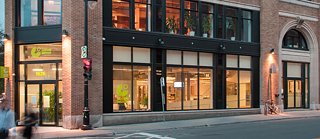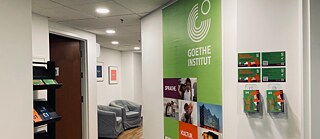{{event.headline}}
Online |
Our experience for your success

The Goethe-Institut brings the German language to the world. We offer German courses and German exams in over 90 countries.
3 instituts in Canada
We promote knowledge of the German language abroad and foster international cultural cooperation. More than 150 institutes worldwide provide culture, language and information about Germany. In addition, there are cooperations with other cultural societies, libraries and language learning centers.





